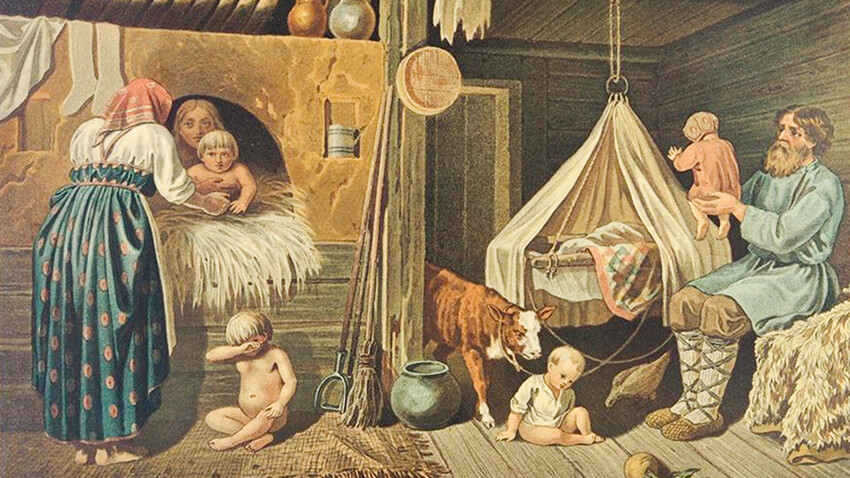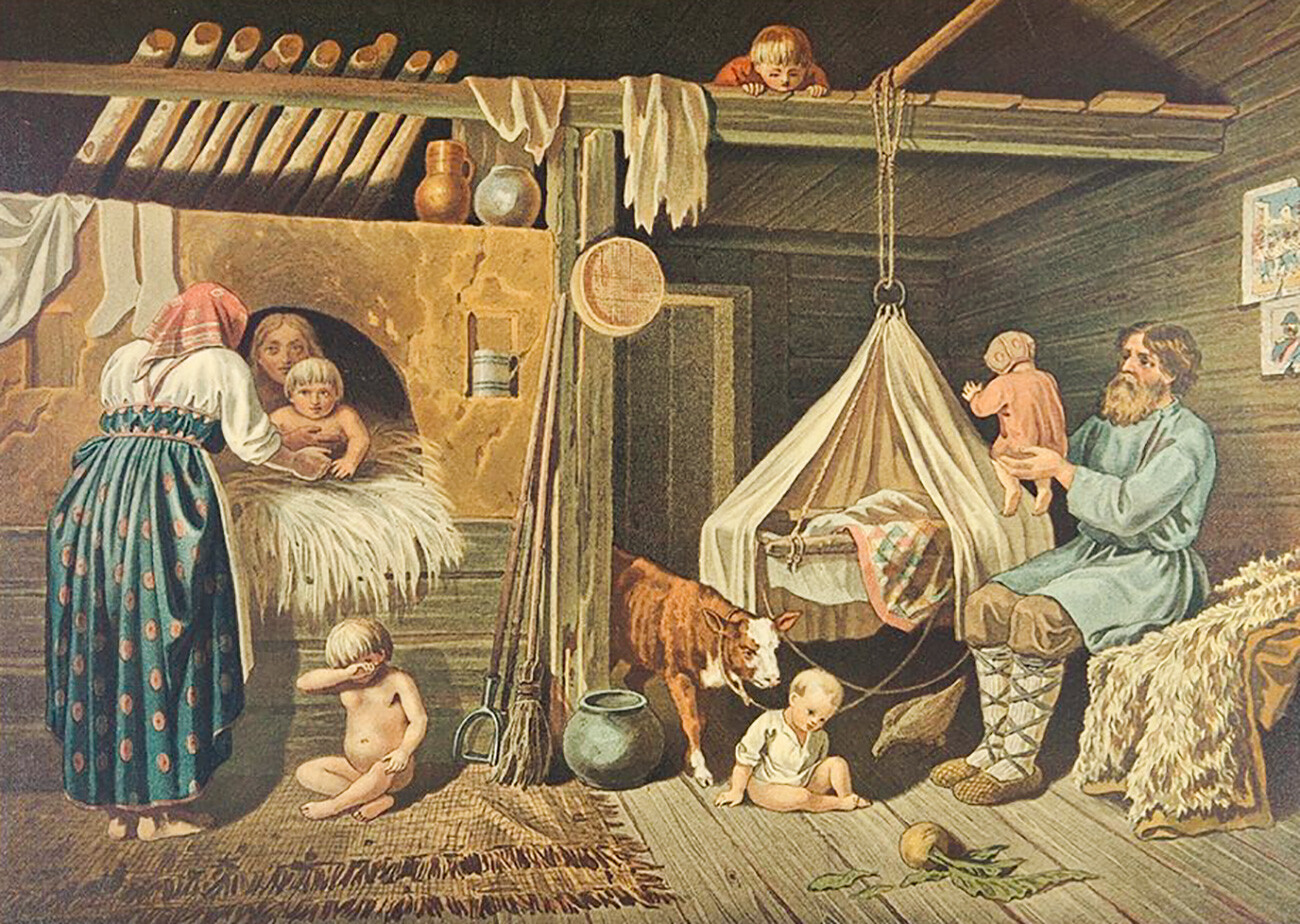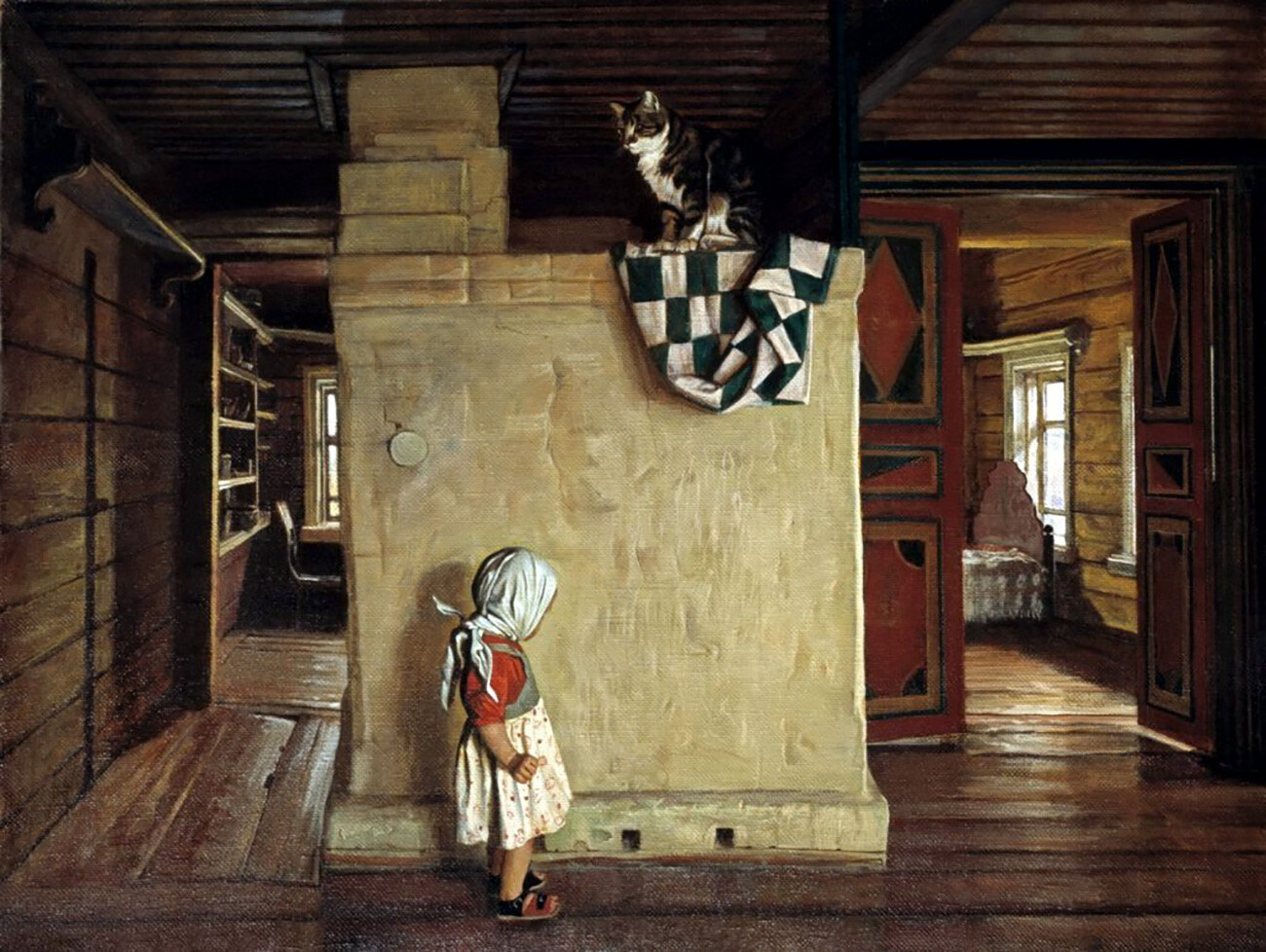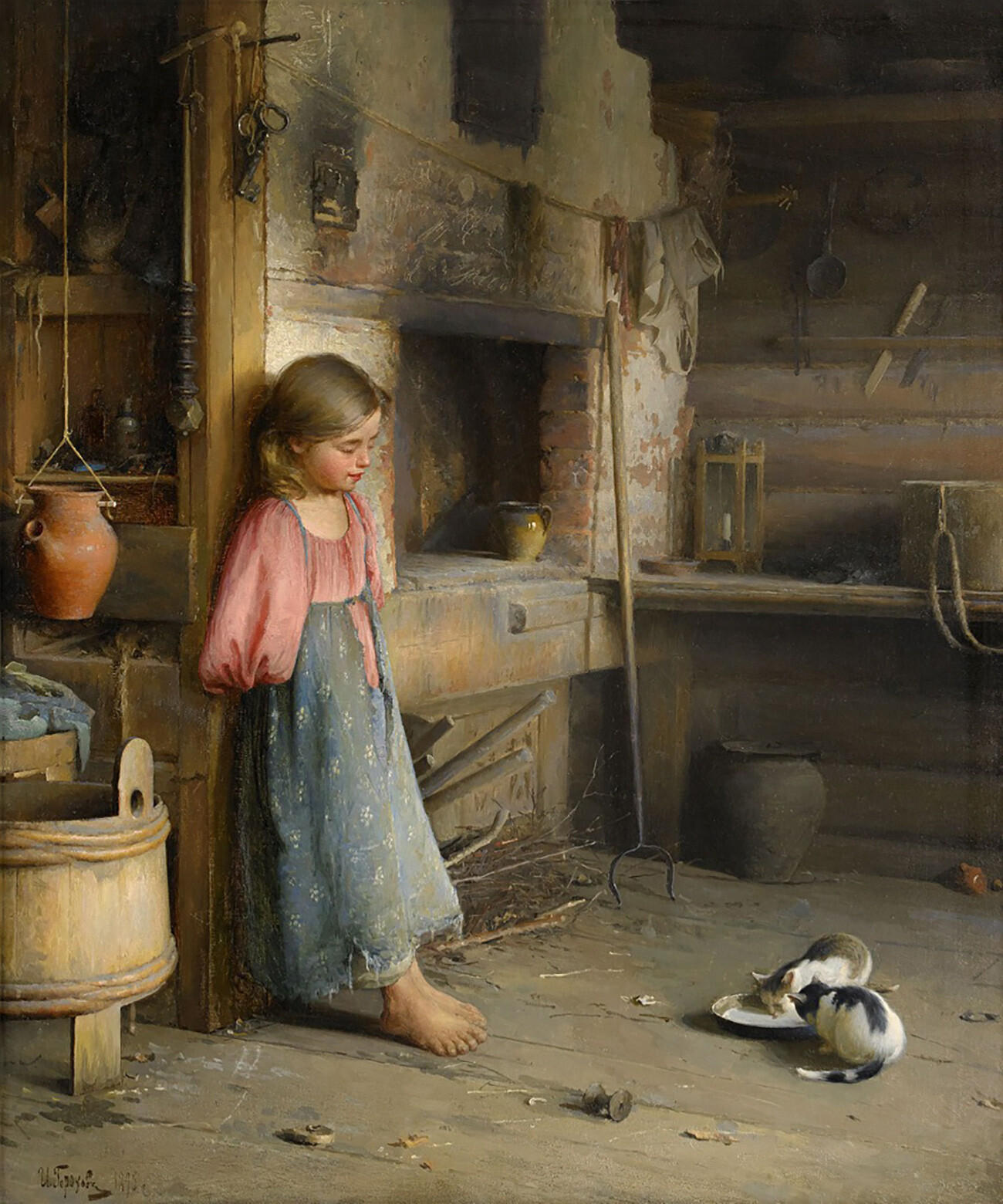

It was not for nothing that the Russian stove oven took up a significant part of the hut - it not only held pots of food, but also several adults could climb in at the same time. In addition, using it as a steam room helped save money: the oven was heated every day, there was no need to spend money on firewood for the bathhouse.

At the end of the day, when all the household chores were finished and the oven had cooled down a little, all the ashes were removed from there. Then they laid straw in the crucible or ‘gornylo’ (that's what its interior was called) and put a cast-iron container with hot water. After that, all that was left was to climb inside and close the damper. Wet the broom thoroughly in hot water and sprinkle it around to create steam.

This method is also mentioned in the ‘Life of St. Irinarkhus’ from the end of the 16th century: deacon Onuphrius of the Nikitsky Monastery suffered from fever and was so shivery that he climbed into his oven to warm up a little. So, the oven was not only a nurse, but also a kind of "hospital": sick people could be carried inside on planks. Even sick babies were placed in the oven to expel diseases. How can one not to remember ‘Baba Yaga’!

Steaming in the oven also had its own peculiarities. People usually climbed in with their feet inside. It was necessary to sit or lie in it very carefully, so as not to burn oneself on the walls. They did not use much water - they doused themselves in a trough standing near the stove oven. The men steamed first and then the women and children. Surprisingly, people used to steam in ovens not only in ancient times, but even in the first half of the 20th century.
Dear readers,
Our website and social media accounts are under threat of being restricted or banned, due to the current circumstances. So, to keep up with our latest content, simply do the following:
If using any of Russia Beyond's content, partly or in full, always provide an active hyperlink to the original material.
Subscribe
to our newsletter!
Get the week's best stories straight to your inbox